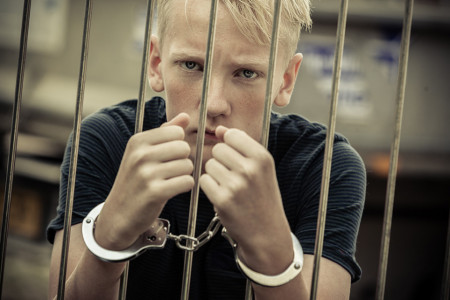
University of Bolton, Deane Road, Bolton. BL3 5AB
Tel:
Email:


“At the University of Bolton, we take great pride in providing a quality, supportive learning environment for our students.”
Professor George E Holmes DL | President & Vice Chancellor
“...tutors are very supportive and you’re not just a student ID number, at this university you are an individual with a name.”
Ellisse Vernon | BSc (Hons) Adult Nursing
Back to menu
Back to menu
Study with an Off-Campus Partner
Back to menu
Back to menu
University of Bolton, why we are the right choice
Location - Bolton, Greater Manchester

03/02/2023
“Teenager charged with manslaughter after a fatal gang fight in Birmingham.”
“Teenager charged after series of moped robberies in London.”
“Teenager sentenced to three years for dealing drugs in a school.”
“Teenager sentenced for downloading and distributing indecent images of children.”
These are not episodes from your favourite crime drama on television. But headlines from recent news about real cases of youth crime.

The days when criminals were almost exclusively middle-aged are long gone. The modern-day criminal is of any age from 10 to 70 years. From stabbing and dealing with illegal drugs to burglary and violent crimes, more young people between the ages of 15-29 are committing some of the worst crimes we know today.
In the last two decades, youth crime has become a major cause of concern for the public and the police. So much so that the government has had to take several steps at the central and community level to tackle youth crime.
All this begs the question – Is our legal system relevant and effective enough to tackle this increasing violence and crime among young people?
Unfortunately, the answer is hardly that simple!
The only way to effectively address this critical matter is by understanding the causes of youth crime and developing appropriate support services that can prevent them from happening in the first place.
What Is Driving Our Youth Towards Crime?
The Mayor of London, Sadiq Khan’s City Hall analysis in December 2021 revealed some complex factors in people’s lives, homes and communities that could alter the likelihood of someone taking the wrong path and turning to violence. These included issues like poverty, inequality, high unemployment, school exclusions, poor mental health, and a lack of youth services.
Recently, the pandemic also played a part in driving young people towards crime. The same report indicated a direct link between the rising unemployment and poverty rates due to the pandemic and the increasing violence among young people in London. Other areas in the country are also experiencing similar trends.
Childhood and adolescent abuse is another contributing factor to young people committing a crime. The Punishing Abuse report, published by the West Midlands Combined Authority (WMCA) and the West Midlands Police and Crime Commissioner, showed that several children in the youth justice system were “being punished as a consequence of the impact on the behaviours of their early abuse and loss.” The same report found that 9 in 10 children are known or suspected to have been abused.
That’s not all.
Apart from the socio-economic and familial factors, young people in the UK also turn to crime due to substance abuse, easy access to weapons, peer pressure, lack of parental guidance, and lack of appropriate education and support services.

How Can Crime & Criminal Justice Professionals Help
Writer Jose Rizal rightly said, “The youth is the hope of our future.”
And we must do everything in our power to safeguard that future by helping young people navigate the most crucial, formative years of their lives empathetically and cleverly. As a criminal justice professional, you will be in a perfect position to bring a change to the existing system, help redevelop the support services, and better help vulnerable young people. You will also get the opportunity to support and guide young people already in the criminal justice system and steer them on a path of honesty, integrity, and dignity.
With your understanding of youth crime and the ways to prevent it, you can reduce the incidence of violence and crime among the youth and show them the right way of living through education, counselling, and work opportunities.
If you think you have what it takes to embark on this challenging yet rewarding career, the University of Bolton is the best place to start your journey. Our BA (Hons) Degree in Crime and Criminal Justice can create the most innovative and intuitive criminal justice professionals for tomorrow! Our faculty will help you gain the professional and personal skills to succeed, and coach you in areas like critical thinking, evaluation and analysis, self-reflection, cultural sensitivity, and the development of mental resilience. We’ll also prepare you for the emotional and psychological demands of criminal justice work and the intense situations you may face during your career. When you leave Bolton University with a BA in Crime and Criminal Justice course, you’ll be equipped with academic and lifelong learning skills that will help you research innovations, apply your knowledge in new ways, and keep abreast of shifts in policy and practice in the criminal justice sector throughout your career.
Choose Bolton University and enjoy #UniAsItShouldBe! Visit us on one of our open days and find out more about our Crime and Criminal Justice course. Or simply contact our award-winning Student Services Team at enquiries@bolton.ac.uk or call us on 01204 903807, and we’ll be happy to answer all your queries.